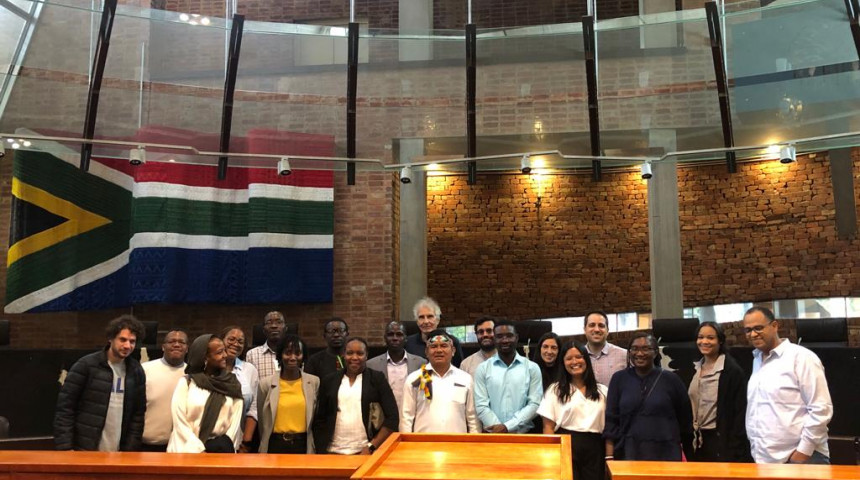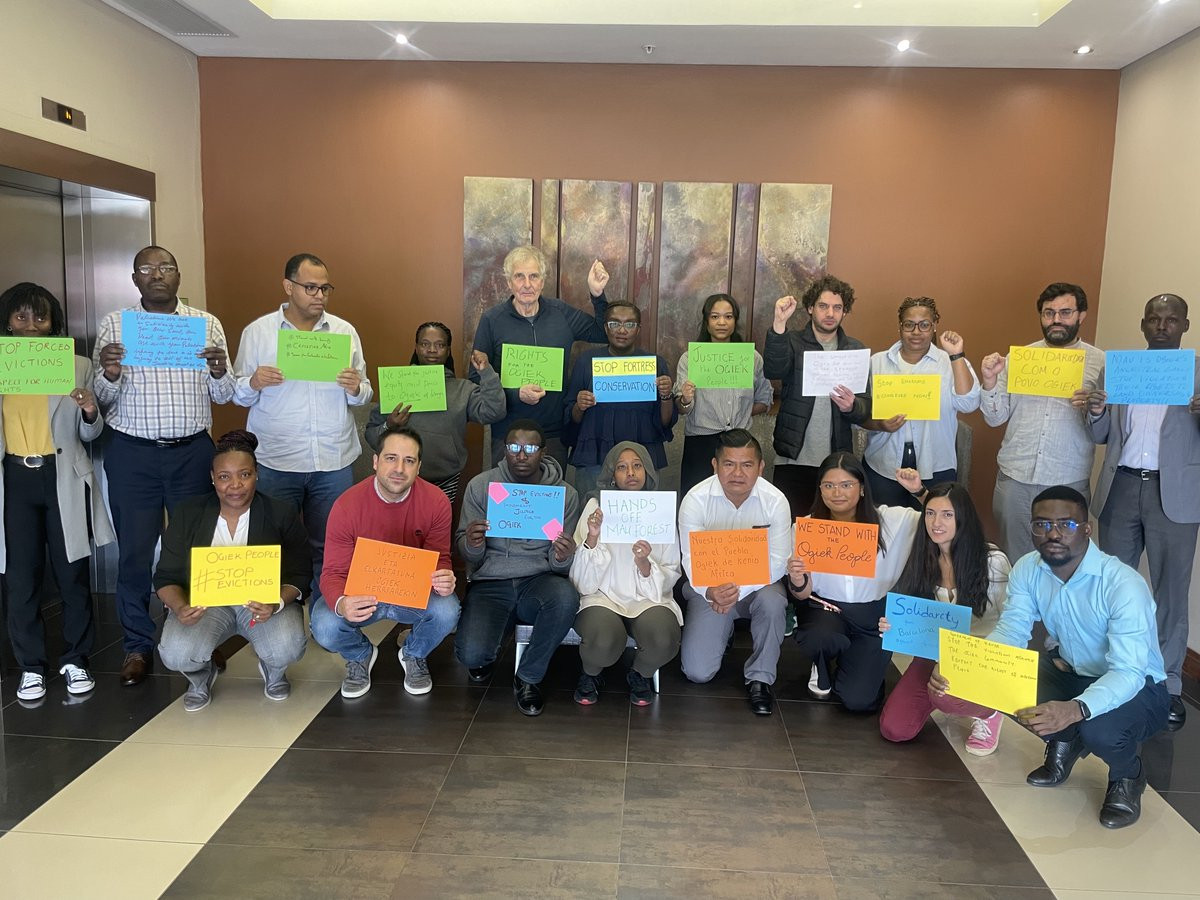The implementation of strategic litigation: workshop in South Africa

On November 1-3 we participated in a workshop on strategic litigation in economic, social, cultural and environmental rights in Johannesburg, organized by the ESCRnet and Amnesty International
Strategic litigation is a form of reporting violations of rights that seeks to achieve structural changes such as new laws or public policies, beyond the specific case that is brought to court. On the few occasions in which a favorable judgment or resolution is obtained, its implementation is usually complicated and the reparation is often minimal. This generates frustration and wear and tear, especially in those cases in which many efforts have been dedicated to collecting data and information, campaigning and accompanying the case collectively from communities, social movements or human rights organizations.
In order to address successful strategies for the implementation of the results of strategic litigation, ESCRnet and Amnesty International organized a seminar in Johannesburg, South Africa, entitled “Advancing the implementation of positive decisions in ESCER”. For three days we were able to share different points of view between regions (especially the African human rights system, but also the European and Inter-American system). The debate between indigenous movements and communities on the one hand (such as the Endorois and Ogiek peoples of Kenya, Abahlali Basemjondolo of South Africa or the Sarayaku Community of Ecuador, and lawyers and human rights organizations, especially African (such as Legal Resources Centre, Center for Applied Legal Studies, Institute for Human Rights and Development in Africa or Women's Legal Centre) was very fruitful. In addition, cases from India and Canada were presented. In our case, Irene Escorihuela, Director of the DESC Observatory and member of the strategic litigation working group of ESCRnet, shared some ideas about the European human rights system and the multiple cases of violation of the right to housing in Spain that have been taken to the United Nations ESCR Committee.
Based on specific cases and implementation experiences regarding ESCER, the following reflections were shared:
- The implementation of the cases is not a specific event, but rather a long process that must begin to be planned from the beginning. It is necessary to have resources for this phase and dedicate time to it.
- It is essential that strategic litigation is part of a joint fighting strategy of communities and social movements. Otherwise, the implementation part will be much more complicated: it is necessary to have the necessary social force to facilitate the State to comply with the resolution or ruling. Likewise, it is necessary to guarantee the safety of the community leaders who have filed the complaint or demand.
- It must be very clear which part of the State is responsible for implementing the resolution. Should we turn to the executive branch? To which Ministry? Should we summon the legislative power for a legal change? Is it necessary to introduce changes in the judicial power?
- It is advisable to create meeting spaces in a dialogue format between the government, victims, social organizations and lawyers, it can be a good way to move towards a more successful implementation. Involving a member of the judiciary or human rights committees may also be helpful.
- It may be useful to consider incorporating an implementation plan as part of the repair requested in the complaint, communication or demand.
- It is important to facilitate implementation to the State as much as possible, so it is recommended to provide data, information, and budget necessary to implement or break down the areas in charge of the different implementation recommendations.
- Sometimes strategic litigation has an impact beyond whether the case is won or not. Often, the impact on the issue allows for changes and advances in rights regardless of the final outcome of the litigation.
- The emblematic case that you want to take to court must be chosen extremely well: from the beginning it must be assessed whether it can be accompanied correctly, both at a legal level and, above all, at a social and community level, not only during the long judicial process but also also a posteriori to make the implementation effective.
- Sometimes, losing a case can also be a trigger for social changes: social indignation can lead to institutional changes or achieve the objectives of the litigation through other means (legislative, administrative...).
We also had the opportunity to visit the South African Constitutional Court, located in an old prison where Nelson Mandela and Mahatma Ghandi were. Likewise, we stand in solidarity with the Ogiek community, present at the workshop. This is a community living in the forests of Kenya that were suffering demolitions of their homes. We also showed concern and solidarity for the genocide in Palestine.
The participation in this workshop is part of the project "Repensem la ciutat post-pandèmia".
Multimedia



